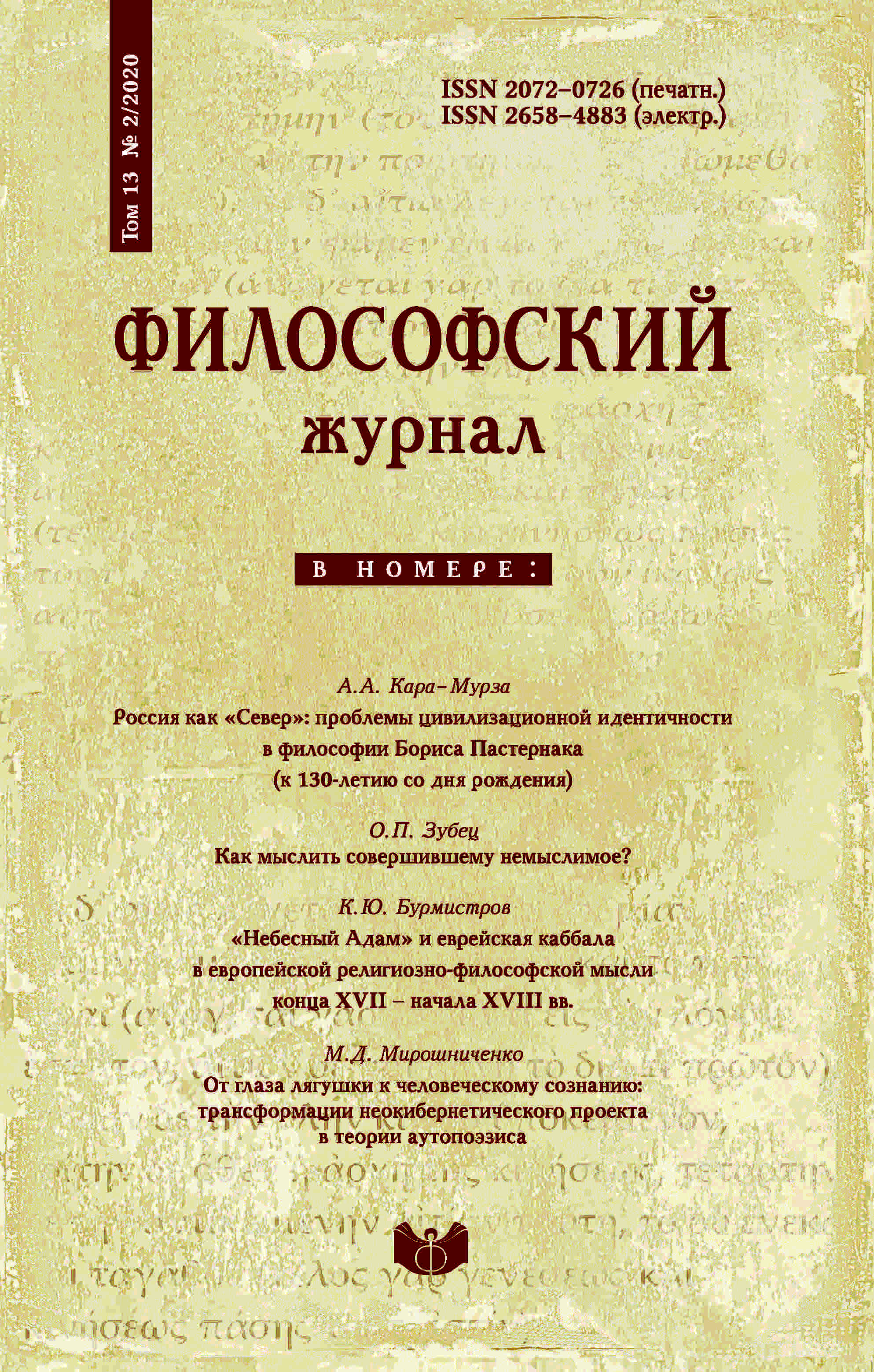Russia as the “North”: problems of civilizational identity in the philosophy of Boris Pasternak (dedicated to the 130th anniversary of birth)
DOI:
https://doi.org/10.21146/2072-0726-2020-13-2-5-18Keywords:
Pasternak, philosophy, literature, cultural identity, “Russian Northernship”, creativityAbstract
The article examines the genesis and evolution of the cultural and civilizational self-identification of the largest poet of the Russian twentieth century, Boris Leonidovich Pasternak (1890‒1960). Building on the analysis of numerous materials, the author provides a proof that Boris Pasternak was formed as a “Nordic Russian”. Pasternak continued the fruitful line of the Russian cultural tradition that ran from Catherine’s era (Derzhavin) – through the Golden age of the Russian culture (Vyazemsky – Pushkin – Turgenev) to the Russian post-revolutionary literature of the XX century. Pasternak repeatedly confirms his “northernism” in such autobiographical works as “Charter of Protection” and “People and positions”. The “winter theme” dominates Pasternak’s poetry and prose as well as his philosophy of creativity dedicated to his famous contemporaries – Leo Tolstoy, Vladimir Mayakovsky, Marina Tsvetaeva.






